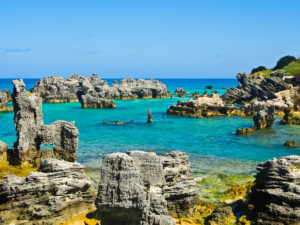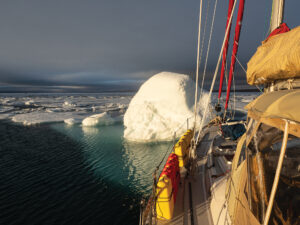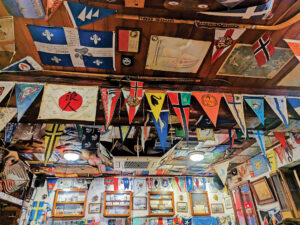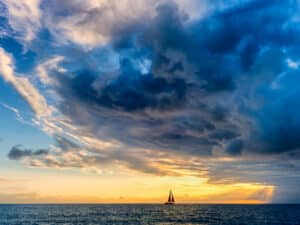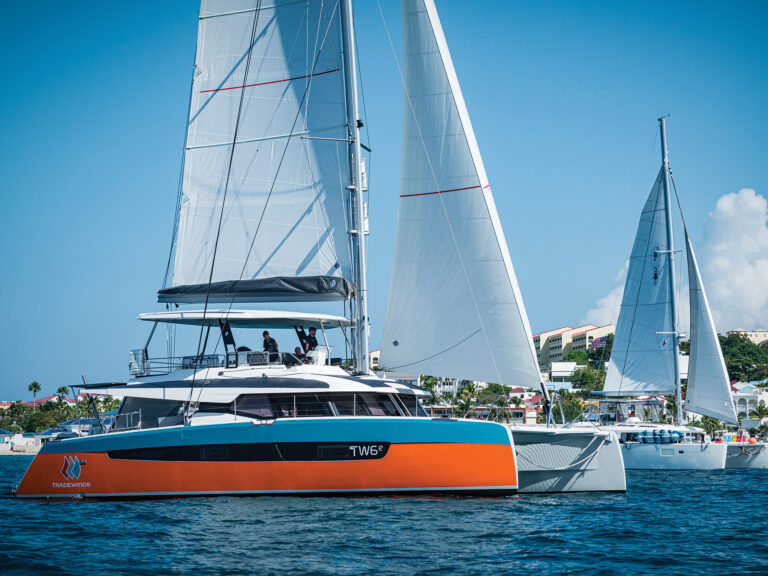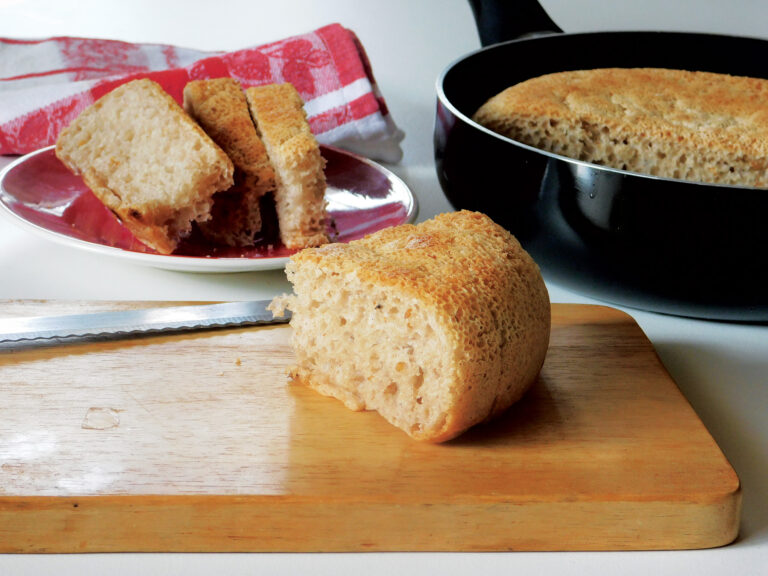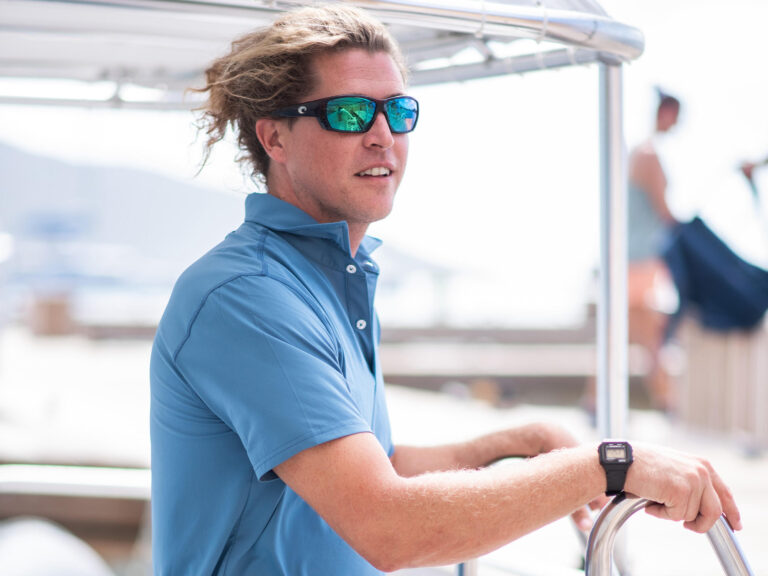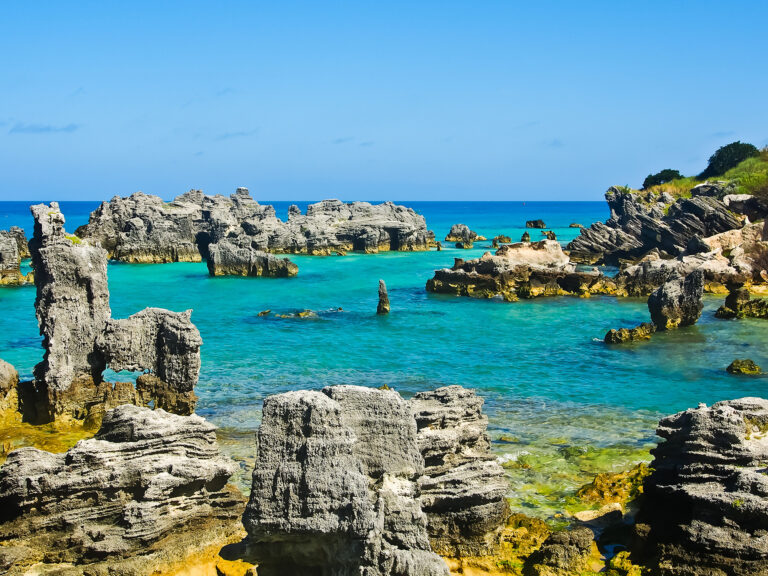| Dear Readers,There are a couple of changes in the works. Weve been invited to write the Log of Ithaka for the back page of Cruising World every month, in the space where Off Watch has been. Were excited about this new assignment, and invite your thoughts for future columns.(Regular readers of Off Watch, dont worry. Starting in April, the column will appear in the front of the magazine, in the section that includes People & Food and Passage Notes, under a new name: Point ofView.)So starting in February, well be posting a fresh “Log Of Ithaka” on-line every other Friday, rather than every Friday. Were grateful to those of you who have read the Log here each week, and hope youll enjoy both the bi-weekly web postings as well as our monthly columns in Cruising World.In many ways, “The Log Of Ithaka” has been a collaboration between us and you, and we write it, as though we are talking with friends. We hope the magazine essays will do the same, so please get in touch via email (Ithaka@cruisingworld.com) if you have thoughts. Again, many thanks for joining us, for your encouragement, and for deepening the experience of our voyage.Bernadette and Douglas |
“Good mornin’ everybody! This is the Northwest Caribbean Net,” says the familiar voice at 8 a.m, every day without fail on 8188 MHz. “This is Dave from Victoria, in Roatan. Can I get a radio check anywhere outside Honduras?”
In the year and a half Douglas and I have been cruising, Dave Waltz and this net have been a godsend, informing us and the other hundred or so boats spread out along the coastlines of the Yucatan, Cuba, Guatemala, Belize, Honduras, and all the way to Panama, about weather heading our way, navigation hazards, and emergencies, as well as orchestrating boat-to-boat traffic. Although a handful of different cruisers take turns as net controllers every day, and each brings his or her own personal stamp to the program, Dave’s humor and spot-on weather analysis is the glue that holds it all together. He’s the man, weather wise—day in, day out—and we all rely on him.
| | Mission control for the Northwest Caribbean Net: Dave and Donnas living room* * *| Meanwhile, we all know about Daves dogs, because we can hear their barking fits during his broadcasts. We know when his wife, Donna, is there, because when she isnt, the dogs and the parrots and all the rest of the critters go wild at once, and the whole broadcast sounds like Dave lives in a zoowhich, come to think of it, he does in a funny way. Dave and Donna are cruisers who got to Roatans southern coast a couple years back, loved what they saw, bought the top of a hill with a spectacular view over Calabash Bight, built a home and sank some roots. Now, from their porch in Roatan, they can look down on _Victoria_, their Tayana 37 safely moored in Calabash Bight, and survey the life theyre making for themselves.
As Ithaka approached the reef outside Calabash, Douglas and I had taken turns looking into the binoculars toward the dinghy speeding toward us from the distance. Unbelievable. It was Dave, who’d heard us on the radio talking with Pieter and Inge on Baerne. He was tearing out to meet us, and lead us through the reef—Dave is that neighborly. Douglas and I each had our own ideas of what the famous Dave looked like; after all, we’ve been sharing breakfast time with him almost every day since January 2001. Douglas thought he’d be tall and thin; I thought he’d be big, burly, and blond. My vision was closer to the real article.
| | Dave and (some of) his dogs* * *| “Hes got a gray beard!” I squealed, as though I were catching my first glimpse of a rock star.
“Gimme those,” said Douglas, and he peered through the binoculars. “Well, Ill be damned.”
“Yo!” called Dave, as he zoomed up through the chop in the dinghy. “How yall doin?”
“Great!” we said, gushing how terrific it was, finally, to meet him after all these months of listening and talking to him on the radio.
“Let’s get y’all tucked in here,” he said. “Follow me. Stay close, and y’all try and stay off those doggone reefs.” He puttered in through the cut in the reef, which was awash on both sides as we passed, then we headed toward some twigs sticking up out of the water. We figured they’d been put there to indicate something. Whoa! They were—an abrupt shoaling. We could’ve reached out and touched the coral. We followed him deeper into the back of the bight through a 10-foot channel in another shoal area that was nowhere on our chart. We chugged along, pushing the button on our GPS every so often so we could retrace our steps later and get back out. Finally, we dropped the hook near Victoria. Dave tied his dinghy to Ithaka’s stern and hopped aboard.
| | photo courtesy of Dave Waltz| | Dave and Donna, with Beauty, on a beach in their cruising days * * *| Over the next several days Dave told us stories that would make any sailors skin crawlabout how he and Donna survived a direct hit by a hurricane, about how Donna lost her boat, about how two people lived with two big dogs, and a bird, in 37 feet of sloop, in the tropics. Over the past year, as wed listened to Dave taking people through, as he put it, “some pretty hairy shit weatherwise,” and as we hung out together, we realized that when hes dispensing weather information on the net, he speaks from both professional _and personal_ experience.
With a masters degree in physical oceanography, Dave Waltz is an oceanographer by profession and a meteorologist by avocation. He spent three years in the Navy, then 17 as part of the NOAA Corps serving on nautical charting ships. He skippered a survey vessel, scouring the bottom of the ocean to update charts. “Jeez, sometimes it was like mowing the lawn,” he said. “Wed go back and forth in a grid pattern over an area. The more important it was, the closer we closed the grid lines. One year it took us from April to September to survey only 10 square miles of Penobscot Bay in Maine.” He spent his last three years (before retiring in 1992 at 42) on the faculty of the U.S. Naval Academy, teaching oceanography.
| | photo courtesy of Dave Waltz| | Victoria under sail * * *| “Now we get to the good part,” said Dave. “Lets just say that Jacques Cousteau and Jimmy Buffett have really messed up a lot of peoples lives, including mine. What I really wanted to do, real bad, was be around sailboats, and the water. Id bought _Victoria_ in 1986. Over the years, Id done a lot of coastal cruising, taken a month off and sailed to Bermuda with a crew of three. Got the shit kicked out of us. Loved it.”
In 1994, Dave decided to take some courses in underwater archaeology at East Carolina University for six months. One day while he was singlehanding Victoria, he says, “I saw Donna on her boat. She was singlehanding, too. She also had a dog. We kinda clicked. We went to a marina so I could get a new echo sounder installed, and there we discovered that her boat, Chrysalis, had bad blisters, so we ended up spending a year in that marina working on the boats.”
Donna, too, had taken off from her old life. She’d worked at a pharmaceutical company for 17 years, had a son who’d bled to death in a car accident, and she’d been inspired to become an emergency medical technician (EMT) as a result. Now she needed a big change, and figured sailing might be it. She’d bought Chrysalis, a Westerly 32 ketch, taught herself how to sail, and took off. “She’s a hell of a woman,” said Dave.
| | photo courtesy of Dave Waltz| | Chrysalis under sail * * *| When _Chrysalis_ was ready, Dave and Donna, singlehanding in tandem, headed south down the ICW to Miami, then on down to the Florida Keys. They spent the winters of 1995 and 1996 in Boot Key Harbor in Marathon, then jumped across the Gulf Stream to Nassau. “Donna was right on my ass the whole time!” said Dave. “We cruised slowly all the way down through the Exumas. Oh man, what a beautiful place. We made it to Georgetown in the summer. There were only 30 boats. Usually, there are 600! It was paradise.”
On Oct 18, 1996, their world in George-Town radically changed. “Oh boy!” said Dave. “Hurricane Lily is how I really got into weather. Twenty-four hours before the storm, Lily was forecast to pass 50 miles north of us, so that’s what we prepared for. But then it started curving to the right. About noon on the 18th, we got the new forecast. We were in for a direct hit. We’d stripped both boats, and Donna and I had planned to stay aboard. Victoria had two 35-pound CQR anchors and one 35-pound Bruce anchor set. We were in Kidd Cove. By 8 p.m., the wind was picking up pretty good, probably around 50 knots. Donna and I decided to get off the boats. We’d already stowed the dinghies! The wind was beginning to make an unearthly moaning sound. Finally we got ashore. Whoo-ee, that was the right decision!
| | photo courtesy of Dave Waltz| | Donna at Victorias nav station, with their parrot * * *| “Some people stayed aboard their boats. We could hear them on the VHF as the hurricane was hitting, screaming, begging for help as their boats were dragging onto the rocks. It was god-awful. Now I can say this with some experience: Never, never, EVER, stay on your boat in a hurricane. Donna and I went out at first light with all the other sailors, asking, Hey, have you seen my boat? Finally, we saw _Chrysalis_, half underwater. One of her anchors had broke at the shank, and shed dragged onto the iron shore. The boat was completely broken up. Luckily Donna had hull insurance. Then we found _Victoria_. Shed dragged too, but onto the sand, and was OK.
“People who survived the blow had long, long snubbers, with lots of stretch. Lesson: If a hurricane is EVER within 24 hours of you, doesnt matter what the experts forecast, you need to figure on a direct hit. Four boats were lost in George-Town.”
“We tried to salvage stuff off Chrysalis. Didn’t get much: some lines and a few of Donna’s clothes that floated up on the beach. It was bad shit. Finally, I couldn’t sit in the dinghy over that wreck without feeling sick. It was like looking into a grave. Donna was traumatized, but she kept trying. She got a hair dryer, some pictures, a toaster oven, a few clothes, but it was all a mess. Your boat is your fort, your home. It took her more than a year to really understand what had happened to her.”
| | photo courtesy of Dave Waltz| | Donna at Victorias nav station, with their parrot * * *| Dave says it took a hurricane to get Donna and him into the same boat, not to mention their dogs, Beauty (Daves Portuguese water dog) and She-la (Donnas Australian collie). After doing what they could to salvage Donnas belongings, they headed back to Marathon to fix _Victoria_ and regroup. Then, full of renewed spunk, they set out cruising again, meandered through the Dry Tortugas, over to Isla Mujeres, Mexico, down along the Yucatan coast to Tulum, Xcalak, Ascension; through the islands of Belize, and into Guatemalas Rio Dulce, where they stayed nine months. When they stopped in Roatan, Honduras, Dave remembers, “_Victoria_ was just too overcrowded. Two dogs. Wow. There was dog hair everywhere. We had a parrot by then, and we had parrot food and sunflower seeds spouting in the scuppers. It was too much on a 37-foot boat. Roatan started to feel real good to us, and Guanajas right next door. I imagined Christopher Columbus, anchored there on his fourth voyage, seeing the same mountains we see here today. We decided to stop, get married, and make Roatan our home for a while.”
| | The last few long, steep steps to Daves and Donnas house* * *| Climbing the steep steps to Dave and Donnas house on Mount Calabash was like ascending to meet one of the godsa kind of personal hajj, as Douglas says and a lung-buster. This scene suits the unconventionality of the Waltzes. Dave and Donna have become part of the community here. They built their house, and still have lots to do to finish the inside, but its a comfy perch with killer views. One third of the living room is devoted to Daves weather desk and all his electronics; its the intergalactic headquarters for the weather section of the Northwest Caribbean Net.
But Daves not just a weatherman. An accomplished musician, he played trumpet in bands all through high school and college in Alabama, picked up the banjo in the Navy, and taught himself the harmonica. Now, he jams in a local band that gets together once a week at the Hole In The Wall in Jonesville Bight. He played with a pick-up band of cruisers at the potluck dinner we had on Christmas Day in Oak Ridge, Roatan. Meanwhile, Donna is busy finishing the house, doing stained-glass projects, and shes completing her recertification as an EMT so she can work the ambulances in Roatan. “That womans a real ditch doctor” says Dave. “She can do anything.”
Daves been doing weather on the NW Caribbean Net continuously for almost three years now. “Before that,” he says, “I was doing it part time. Then I got really serious about it. I dont like folks thinking of me as this weather czar, but I do enjoy the work. Yknow, continuity is real important. Folks gotta know, over time, if they can trust the info. They need to hear it from the same person for an extended period, and then they can know how to translate what that guys saying. Its still up to each skipper to decide what action to take. My job is to illuminate. At the end of the hour, if Ive been able to help someone through something ugly, I feel great.”
| | His old plates, tacked over the workshop* * *| Calabash is a protected fjord-like bight, where 55 shrimp boats anchored for protection during Hurricane Mitch. “This is home now,” says Dave, surveying his empire on the hill. “Weve got five dogs, four parrots in cages, and one at large in the tree next to the house. We got two cats, and an awful lot of chickens running around. There are no roads to here. Everyone gets around by dinghy. Its a daytime life; were home by dark. Everything that comes into our house gets here by lugging it up that steep hill, by hand. Sometimes, thats backbreaking work. I designed a funicular to solve that little problem, and Im in the process of building it right now. I got _Victoria_ right here. I got Donna. I got my music. Things are pretty darn good.”
Hes also got his daily weather work for which every cruiser down here is grateful. We listen to his precise technical descriptions and colorful addenda about “thunder-bumpers… pretty doggone decent weather windows bad shit brewin…” Daves the voice who calms and cautions, who informs and jokes, who ties together a disparate community from a hill in Roatan. And he does it all for the fun of teaching. Thanks, Dave. Cruising the Northwest Caribbean wouldnt be the same without you.
[e-mail the Bernons](mailto: Ithaka@cruisingworld.com)

